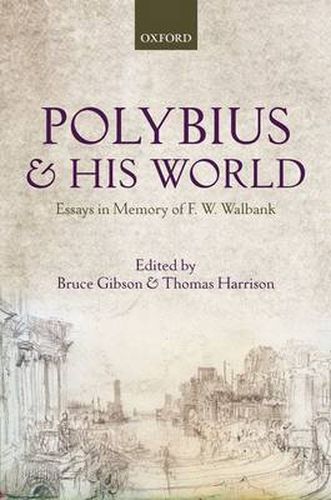Readings Newsletter
Become a Readings Member to make your shopping experience even easier.
Sign in or sign up for free!
You’re not far away from qualifying for FREE standard shipping within Australia
You’ve qualified for FREE standard shipping within Australia
The cart is loading…






From his first publication, Aratos of Sicyon (1933), to his death in 2008, F. W. Walbank established himself as one of the leading ancient historians of the last century. Polybius and his World honours Walbank’s achievement by bringing together a number of leading scholars in the fields of Hellenistic historiography and history. The twenty chapters, including an introduction by the volume’s editors, re-examine a number of central Polybian themes: his relationship between Greece and Rome, his account of the Roman constitution, and the relationship of his work with Xenophon, Phylarchus, Aratus of Sicyon, and Livy (amongst others). The book looks at Polybius’ text in the light of narratological perspectives and for the wealth of source material it offers for the economic historian, whilst three chapters also consider aspects of Walbank’s personal life and work, especially the relationship between his political commitments and his academic work, the genesis of his Polybian commentary, and the personal backdrop to his career.
$9.00 standard shipping within Australia
FREE standard shipping within Australia for orders over $100.00
Express & International shipping calculated at checkout
From his first publication, Aratos of Sicyon (1933), to his death in 2008, F. W. Walbank established himself as one of the leading ancient historians of the last century. Polybius and his World honours Walbank’s achievement by bringing together a number of leading scholars in the fields of Hellenistic historiography and history. The twenty chapters, including an introduction by the volume’s editors, re-examine a number of central Polybian themes: his relationship between Greece and Rome, his account of the Roman constitution, and the relationship of his work with Xenophon, Phylarchus, Aratus of Sicyon, and Livy (amongst others). The book looks at Polybius’ text in the light of narratological perspectives and for the wealth of source material it offers for the economic historian, whilst three chapters also consider aspects of Walbank’s personal life and work, especially the relationship between his political commitments and his academic work, the genesis of his Polybian commentary, and the personal backdrop to his career.